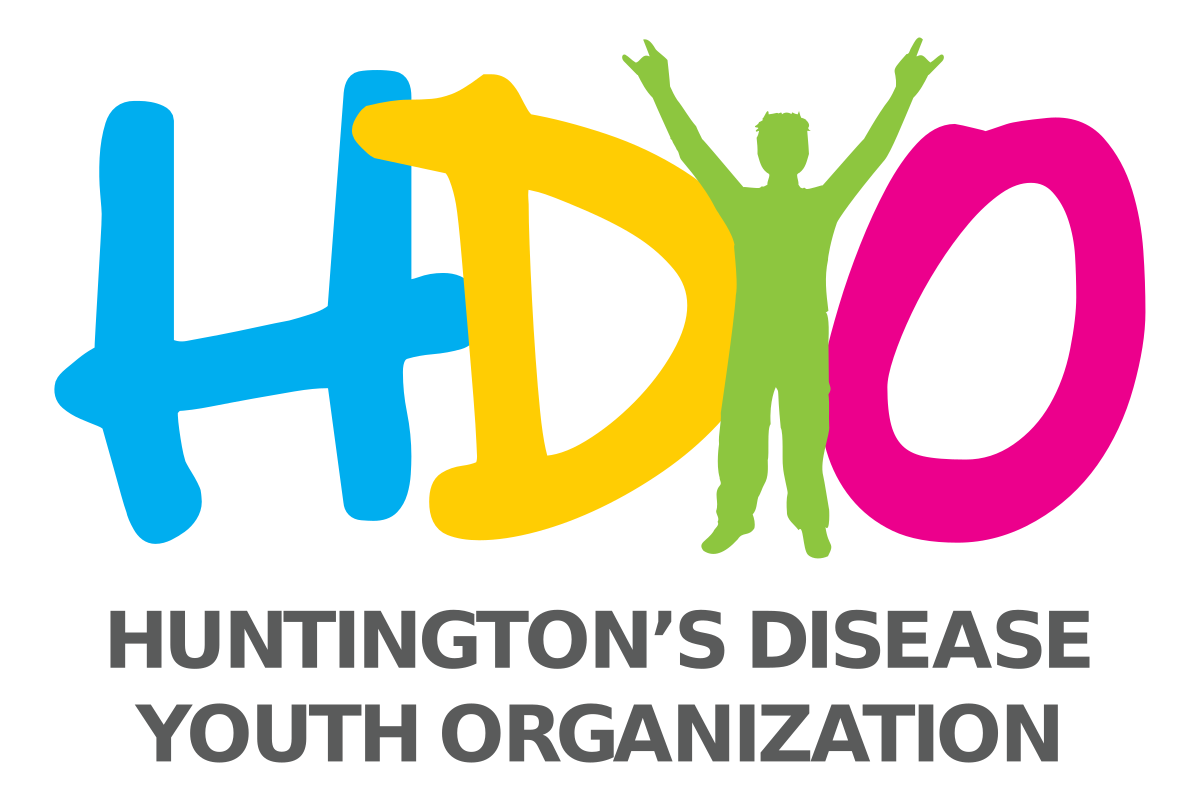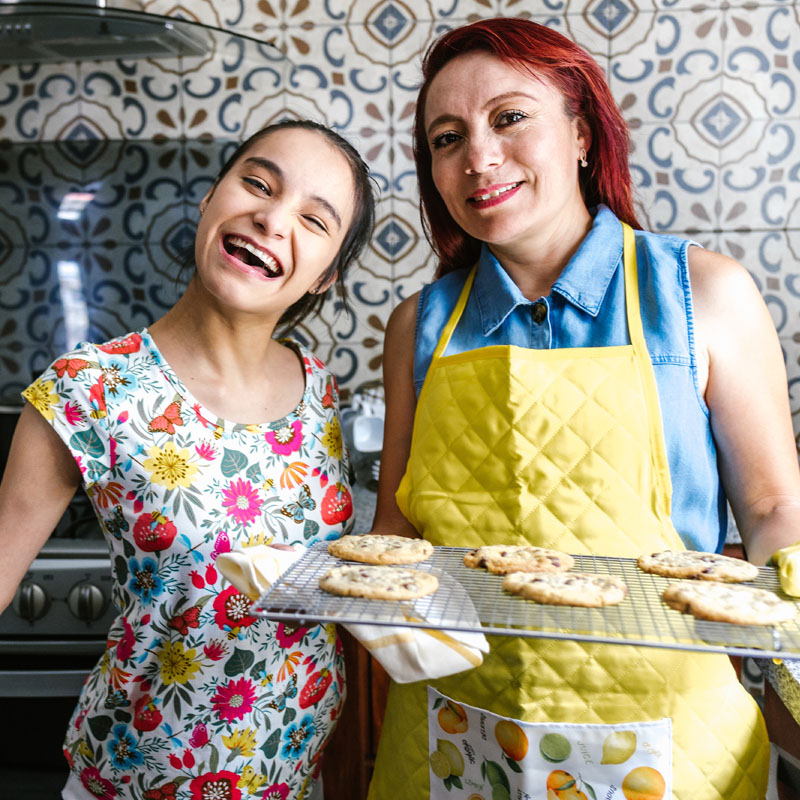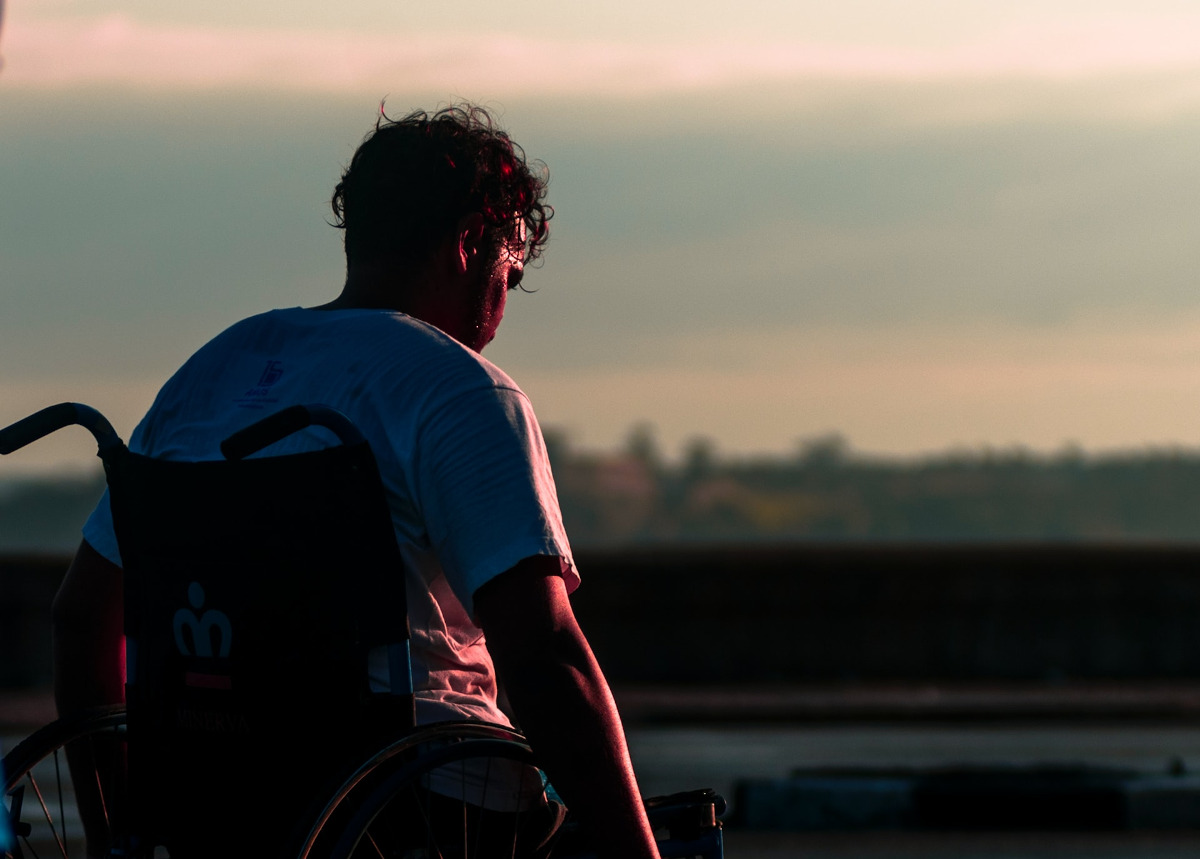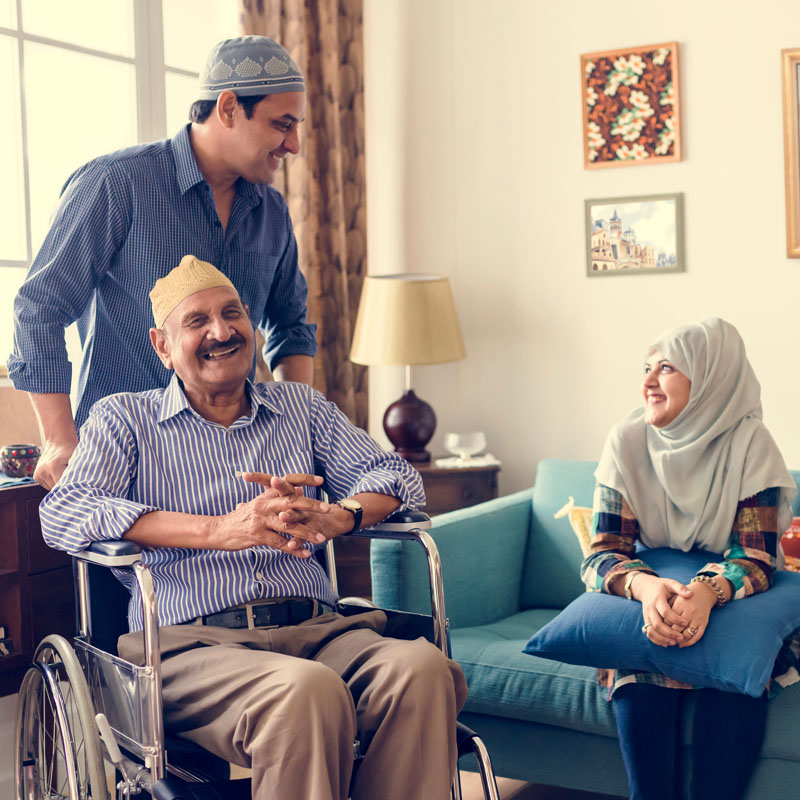Top Tips for Helping a Person with HD - for Teens
November 23, 2021

HDYO has more information about HD available for young people, parents and professionals on our site:
www.hdyo.org
Written by Michaela Crutsinger, OTDS
Edited by K. M. Knewstep-Watkins, OTD, OTR/L
This section is here to help teenagers look after their family member who has HD by offering some tips on caring. These tips are split into different topics and stages of HD (early, mid and late stage). We hope you find this section helpful.
Early Stage
Eating and Meals

A family member with new symptoms of HD may have some difficulties while making and eating meals. Some difficulty can be from their difficulty making smooth movements and other difficulties are related to new, small challenges with certain thinking abilities.
- Aids, also called “adaptive equipment,” can help people minimize spills. These can include plates with a lip or putting a special lip on the plate (“plate guard”). For some people, it is helpful to use utensils with bigger handles and/or utensils that are weighted. You can make a utensil larger on your own by sliding a handlebar grip or foam tubing over the handle.
- Many people find that using a plastic mug with a handle and lid also prevents spills. Sometimes it is also helpful for the mug to have a special weight on the bottom.
- It is helpful for household dishes and cups to be plastic. A person with HD can have difficulty with dropping items, and broken glass can be a safety issue for everyone in the house.
- Be cooperative with eating family meals at a table rather than sitting on the couch. It is easier to avoid spills when eating meals at a table.
- Be cooperative with reducing extra distractions during meals by turning the TV off. It is easier to avoid spills when eating meals with fewer distractions.
- Offer to help with making the meal, especially if your family member is tired.
- If your family member with HD has been cooking, double-check that the oven and stove were turned off. If you notice that the oven or stove was accidently left on, turn it off and respectfully let the caregiving adult know what you saw.
Getting Dressed

A person with HD may find fasteners, such as shoelaces, buttons, and zippers, more difficult. Fasteners can take more time, attention, and effort to do because of new difficulty with making small, controlled hand movements. At other times, some people with HD may become more likely to forget to line-up the fasteners or even forget to do the fasteners.
- Sometimes people with HD have favorite clothes because these clothes don’t have buttons or zippers, which makes them easier to put on or take off.
- Encourage a family member with HD to get in the habit of sitting down while getting dressed. This makes it easier to focus on managing the fasteners and makes them less likely to have a fall.
- When shopping for new clothes, consider helping your family member pick out clothing that is easy for him to manage. Often people with HD like pants with elastic waists and shoes that are slip-on or Velcro.
Using the bathroom
- If your family member is often rushing to the bathroom or has fallen in the bathroom, this is helpful information to share with the medical team. The medical team can help your family member address these concerns.
Driving
Driving safety is important for everyone, always. HD can influence driving safety, and affect skills such as making quick decisions and controlling movements.
- If/when your family member is still driving, avoid talking on the phone, in-depth conversations, or listening to loud music on the stereo. These can help them focus and concentrate
- Always wear your seatbelt.
- If you ever feel unsafe riding in a car, you should tell a trusted adult.
- If you are an older teenager who can drive, offer to drive your family member to appointments or errands to give them a break. Driving is tiring!
Mobility

- During this stage, people with HD can still walk own their own but may be starting to with trip or fall more often. Sometimes, these falls are due to changes in balance and a new difficulty staying focused. Encourage your family member to use caution and avoid distractions, especially when walking on uneven or slippery surfaces.
- In some cases, either person-to-person or depending on the surface, it may be helpful to use trekking poles with rubber tips. It is encouraged that a physical therapist teach your family member how to adjust the trekking poles and learn how to use them.
- As a family, explore enjoyable, active family activities to encourage your family member with HD to maximize his strength and coordination. Make favorite family activities easier so everyone can participate and enjoy them. For example, family biking could now include the family member with HD using a recumbent-style bike.
Home safety
- Keeping a tidy environment can help prevent falls. Try to keep your personal items organized or in your room. Keep pathways clear from clutter.
- Talk with your parents about what safety measures they have taken in the bathroom, kitchen and elsewhere, and be supportive of these.
Thinking/Cognitive
- Writing out directions, lists, and notes can help with memory difficulties and comprehension.
- Sticking to the family schedule is very helpful.
Middle Stage
Eating and Meals
- During mealtimes, keeping distractions to a minimum can be helpful.
- Keep surroundings calm and quiet. Understand that eating can be very tiring.
- Persons with HD often have big appetites and require high calorie foods to replace energy burned. You can provide snacks such as full fat yogurt or ice cream to aid in this.
Driving/Transportation

- As able, offer to drive or accompany your family member on public transit to errands and appointments.
- Some people with HD may be able to use a taxi-alternative (e.g. Uber or Lyft) for doing community activities.
Mobility
- Work with your parents and the physical therapist and/or occupational therapist to learn how to safely help your family member with HD with mobility or transfers, if needed at this stage
- Become familiar with any devices they use.
Home Safety
- Keep cords out of the way of traffic and keep clutter to a minimum.
- Help supervise for safety when your family member is in the kitchen.
- Stabilize furniture and reduce throw rugs
Thinking/Cognitive
- If caregiving or assisting in caregiving, help the person maintain their daily routine. If lists and labels are used, continue using these cues.
Late Stage
Eating
- When preparing food for your family member, follow protocols for chopping or pureeing that are given by the Speech Language Pathologist. Difficulty with swallowing is very common in late-stage HD
- Persons with HD burn a lot of energy and need to replace it. When giving them snacks, choose full fat yogurt or ice cream, and ensure foods are the recommended consistency.
- When eating becomes too difficult, a feeding tube may be an option that your family considers with the medical team.
Staying at home
- Some people with HD need more help than can be available at their home. Your family member may move to an outside facility for greater care.
Mobility
- Some persons with HD may walk longer than others, but it is common to need physical help in the late stage.
- In the late stage, transfers may need to be completed safely with multiple people or a lift.
Home Safety
- Continue to remove tripping hazards, pad doorways and furniture, follow recommendations from caregivers and occupational therapist.
Thinking/Cognitive
- In the late stage of HD, your family member’s cognitive abilities will decline. Thinking will be foggy and they’ll have trouble learning new things.
- Activities and tasks take longer and your family member can get tired easily.



